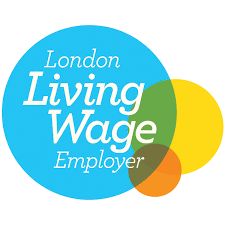
A recent blog focussed on a report entitled ‘Boosting the Living Standards of the Self-Employed’ which recommends that new measures are needed to improve the living standards of the most vulnerable self-employed, with changes to National Insurance, Universal Credit, pensions and maternity and paternity pay being key priorities.
The report was produced by the RSA - The Royal Society for the encouragement of Arts, Manufactures and Commerce. The RSA is a charity which encourages the development of a principled, prosperous society and the release of human potential.
They believe that all human beings have creative capacities and that by sharing powerful ideas and carrying out cutting-edge research, we can build networks and opportunities for people to collaborate - creating fulfilling lives and a flourishing society.
Their latest report is called The Second Age of Small, which we will look at in this article.
The report was triggered by the fact that in the UK the micro business community is booming. A micro business can be defined as a company with 0-9 employees, and there are now 5 million such businesses in the UK. This is an increase of 1.5 million since 2000 and contrasts with overall declining numbers of people employed by companies of other sizes. The RSA has described this phenomenon as the “second age of small”.
The “second age of small” label refers back to the dominance of cottage industries in pre-industrial Britain. Some economists have assumed that this trend would not recur in the UK.
For example Simon Kuznets - who won the 1971 Nobel Memorial Prize in Economic Sciences for his empirically founded interpretation of economic growth - long ago predicted that as economies became more prosperous small businesses would diminish and rates of self-employment would fall. However, the RSA report does not agree. It argues that micro businesses have a positive effect in three main areas:
- Productivity - Whilst an initial analysis of government data might indicate that micro businesses are less productive than their larger competitors, this does not take into account the fact that half of new businesses fold within the first three years. Looking at established micro businesses, they do in fact have higher productivity levels in around half of the 19 fastest growing sectors, particularly those based on relationships such as education, health and social work.
- Innovation - Whilst small firms can struggle to innovate, with less investing in internal R&D than large firms, there is evidence that small firms are more efficient at innovation when taking into account each unit of R&D expenditure. They are also better placed in terms of ‘intangible’ or ‘soft’ innovation – the generation of new concepts, designs and experiences – which has lower resource requirements.
- Job Creation - Whilst there may seem to be fewer employment opportunities within micro businesses and perhaps not as favourable conditions - and fewer benefits - as larger firms, micro businesses still have an important role to play in job creation. Government data clearly shows that employees of micro businesses are one of the most satisfied groups in the labour market, particularly in areas such as autonomy, involvement in decision-making, loyalty to the organisation and relations with management.
Overall, the RSA report concludes that the micro businesses boom should be celebrated by economists and policymakers. The task for the new government is to find the ideal level of balance in market concentration that allows for both big and small businesses to flourish for the benefit of everyone in the economy: consumers, workers and entrepreneurs alike.
At Fair Business Loans we will continue to support entrepreneurship and micro businesses in every way we can. If your business is in need of a small business loan or other financial support why not get in touch with us today to see how Fair Business Loans can help?




